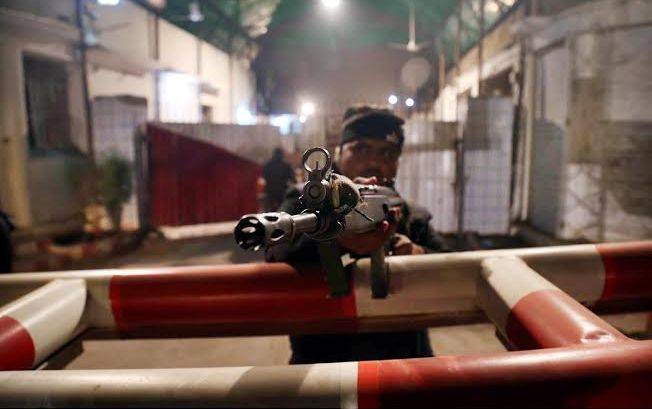On the face of it, there seems to be no problem with the Organisation of Islamic Cooperation (OIC) wishing to hold a peace conference in Peshawar. Pakistan is after all, a Muslim majority country and the OIC a respectable international institution that defines itself as the “voice of the Muslim Ummah.” The current Secretary General of the organisation, Mr. lyad Amin Mada, a former Saudi minister, has strongly condemned the Peshawar massacre in his meeting with Khyber Pakhtunkhwa Chief Minister, Pervez Khattak, and proposed that a peace conference of ambassadors and representatives of the Muslim Ummah come together in the city to address the menace of terrorism and adopt a joint policy against terrorists. But herein lies a very big problem.
The organisation’s convention on combatting international terrorism, which was adopted in 1999, defines terrorism in Article 1 as any act of violence perpetrated with the aim of “terrorizing people or threatening to imperil their honour, freedoms, security or rights.” This is a rather vague definition of terrorism and has been rejected repeatedly by various human rights organisations including Human Rights Watch. Like Pakistan’s own new anti-terror law, the Protection of Pakistan Act, its description allows for a great number of offences to be considered acts of terrorism. In May 2007, the ministers of the organisation declared Islamophobia to be the worst form of terrorism. In 2012, ministers staged a walkout over the organisation’s first ever discussion of LGBT rights and sexual orientation (the charge was led by Pakistan’s representative to the OIC). Of the ten fundamental tenets of its charter on terrorism, it includes the desire to “promote cooperation for combating terrorist crimes that threaten the security and stability of the Islamic States.” The organisation has been criticised time and again for not rejecting any criticism of its own member states, and for not aligning its charters with international standards of human rights. Suffice to say, any international organisation that proposes peace in Pakistan and is led by a representative of Saudi Arabia, should be approached with caution.
Essentially, what the nation is trying to reconcile to after the Peshawar attack on Dec.16, where we lost over a hundred of our children to brutal, politicised Islamic militants, is the need for a reasonable separation of religion and politics. This is exactly what the OIC is not. Civil society is rejecting the loud noises of politically motivated clerics on the media and from the pulpits of mosques scattered around the country. We are finally keeping our eyes and ears open for terrorist sympathisers, for organisations like the ASWJ who condemn one kind of terror attack but hail others. We must not give too much time or credence to organisations like the OIC at this time; organisations which will largely waste time on yet another charter full of vague inferences against an enemy only we in Pakistan can truly understand and fight.
Saturday, April 20, 2024
Approach With Caution

22 suspects arrested
April 20, 2024
RCCI chief for promoting law-abiding culture
April 20, 2024
Provision of quality education govt’s priority: KP minister
April 20, 2024
A Tense Neighbourhood
April 19, 2024
Dubai Underwater
April 19, 2024
X Debate Continues
April 19, 2024
Hepatitis Challenge
April 18, 2024
IMF Predictions
April 18, 2024
Kite tragedy
April 19, 2024
Discipline dilemma
April 19, 2024
Urgent plea
April 19, 2024
Justice denied
April 18, 2024
AI dilemmas unveiled
April 18, 2024
ePaper - Nawaiwaqt
Advertisement
Nawaiwaqt Group | Copyright © 2024





